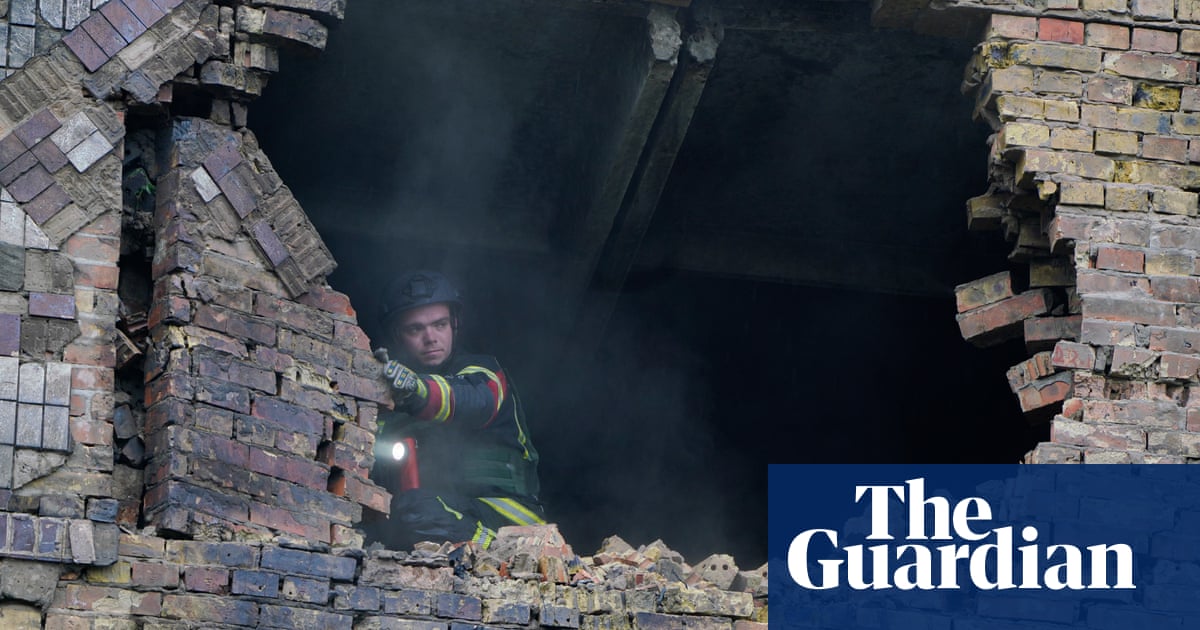The period of an unagreed ceasefire called for by Vladimir Putin began on Thursday morningas the Russian president seeks cover for Victory Day events. Ukraine has dismissed it as a “game” designed to protect Putin’s parade rather than a genuine step towards peace. Foreign leaders includingChina’s Xi Jinpingare visiting the Russian capital for Victory Day celebrations. Volodymyr Zelenskyy, Ukraine’s president, has offered a 30-day ceasefire as suggested in US-brokered talks, but the Kremlin has refused.
The Kremlin was forced on Wednesday to say it was taking “all necessary measures” to ensure the safety of foreign leadersdue to attend its flagship 9 May parade afterdays of Ukrainian drone attacks closed airports across Russia, disrupting about 350 flights due to carry about 60,000 people. The Kremlin spokesperson Dmitry Peskov said authorities were jamming the internet because of the drone threat. “As long as guests are here, until 10 May, we need to be ready for restrictions,” he added, calling on Muscovites to be understanding.Ukraine’s own airspace has been closed ever since the Russian full-scale invasion began in February 2022.
Hours before Putin’s self-declared ceasefire was set to come into effect,Moscow unleashed a barrage of drone attacks across Ukraine.Ukraine’s air force said Russian aircraft targeted the north-eastern Sumy region withguided air bombs after the ceasefire was supposed to begin. Earlier, Zelenskyy said a Russian attack killed a mother and her son in Kyiv on Wednesday. A Russian drone attack alsowounded four people in the southern city of Zaporizhzhia, Ukraine’s national police said.
Zelenskyy appeared to acknowledge the drone attacks that have been targeting Russian sites, including the city of Moscow,disrupting the buildup to Victory Day. “It is absolutely fair that Russian skies, the skies of the aggressor, are also not calm today, in a mirror-like way,” he said.
Ukrainian long-range drones reportedly hit two military-industrial targetsin Russia on Tuesday: theBazalt plant in Krasnoarmeysk near Moscowmaking weapons and ammunition, and theSplav plant in Tulaproducing multiple launch rocket systems and cartridges. The BBC said a source at the Security Service of Ukraine (SBU) suggested the attacks were coordinated with the drone raids that shut down airports.
Joe Biden has accused Donald Trump of “modern-day appeasement” in his approach to Russiaand expressed fears that Europe would “lose confidence in the certainty of America” inhis first interview since leaving the White Housein January. “He [Vladimir Putin] believes it [Russia] has historical rights to Ukraine,”Bidentold the BBC. Anybody who thought the Russian president would stop if Kyiv conceded territory,as recently proposed by Trump, “is just foolish”, he said.
A Russian drone is estimated to have inflicted tens of millions worth ofdamage to the €1.5bn radiation containment around the destroyed reactor at Chornobyl nuclear power plant. The cost of a full fix is likely to be borne by western governments including the UK, because initial estimates are that a complete repair will cost more than the €25m available in a special international contingency fund,Dan Sabbagh writes from Chornobyl.
